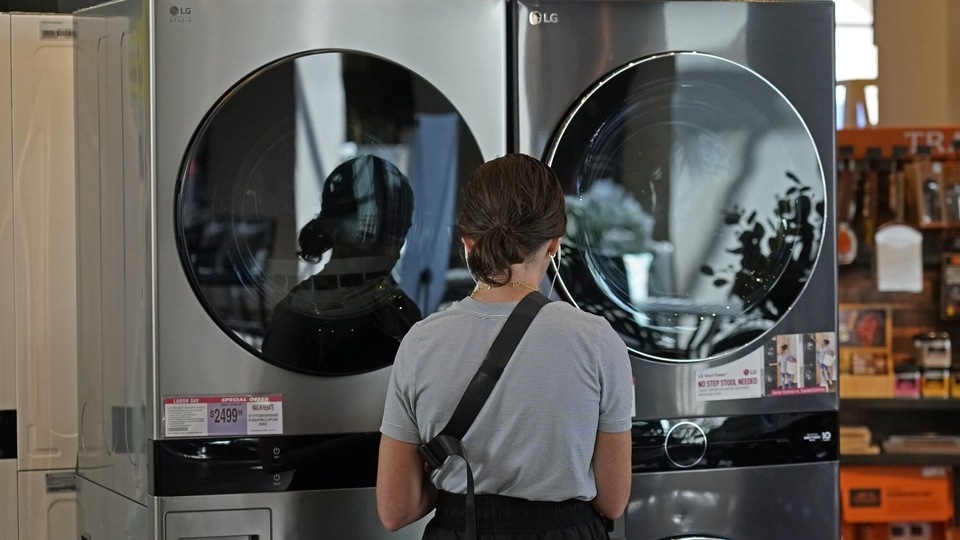Age of machines: Arm CEO Rene Haas Fears Humans Could Lose Control of Artificial Intelligence
“The thing I worry about most is humans losing capability” over the machines, said Rene Haas, CEO of Arm Holdings, when asked what keeps him up at night when he thinks about AI.







 View all Images
View all Images“The thing I worry about most is humans losing capability” over the machines, said Rene Haas, Chief Executive Officer of Arm Holdings Plc, when asked what keeps him up at night when he thinks about artificial intelligence. “You need some override, some backdoor, some way that the system can be shut down.”
Haas, who was speaking to Bloomberg in a wide-ranging interview from the company's Cambridge, UK, base knows a thing or two about machines. By his estimate, 70% of the world's population touches Arm-designed products in some way. It's a reminder of the company's rare status as a UK-born global tech titan — even if it is now majority owned by Masayoshi Son's Softbank Group Corp. in Japan, and listed in New York.
As Haas considers the potential downsides to artificial intelligence, he's determined that Arm's next chapter will see the company proving as essential to the generative AI revolution as it's been to smartphones, where its semiconductors are ubiquitous.
“I think it will find its way into everything that we do, and every aspect of how we work, live, play,” said Haas, who this year oversaw the company's $54.5 billion initial public offering. “It's going to change everything over the next five-to-10 years.”
Haas, who became CEO in February last year, has been trying to lessen Arm's dependence on the shrinking smartphone industry by getting its technology into areas such as personal computers, servers and electric vehicles. The company is also offering more complete designs to phone customers, aiming to get more revenue per device sold.
It's a market where Arm is already omnipresent. Its instruction sets are embedded in processors that run virtually all of the 1.4 billion smartphones sold every year, with more than 99% using either Arm designs or its technology.
Now it's cloud data centres where Haas sees exciting opportunities, however. Large language models such as OpenAI and Google's Bard require huge amounts of storage and data capacity and he's targeting a 50% market share globally in the years ahead.
But ambition itself of course doesn't guarantee success, and whether Arm proves to be central to the future of AI remains to be seen. Until now, the main beneficiary of the boom has been Nvidia Corp., whose stock has soared more than 200% this year amid investor giddiness over prospects for the industry.
Still the possibilities could be vast, with Arm seeing the revenue opportunity growing to $28 billion by 2025, expanding at a rate of 17% per year from now, according to a video presentation in September by Chief Financial Officer Jason Child.
Haas also has his focus set on dominating so-called edge computing, when systems run off devices in the home or office, rather than from a centralized cloud.
“As these edge devices get smarter and smarter, and more technology is being stuffed into that pocket, that's a very good place for Arm,” Haas said, noting the company's leadership in energy-efficient designs.
China is both an opportunity and risk for Arm, which gets about 25% of its revenue from the world's second-biggest economy. The company's revenue totaled about $2.7 billion in its fiscal year 2023.
Arm needs to navigate US restrictions on the shipment of high-end chips to the country, while maintaining its market share and protecting its intellectual property. Tech CEOs with exposure to China 'all run a very fine line these days,' Haas said.
“I think CEOs 10 years ago didn't talk to government officials with nearly the frequency that we do today,” he said. “So we comply with all the export controls, whether it's from the US or other parts of the world.”
And while the company adjusts to changes in the Chinese market, Haas said a more immediate concern is access to talent, particularly in the UK.
Britain remains central to the future of the company, but politicians shouldn't lose sight of the need for tech companies to bolster their ranks with overseas talent, he said.
“We were born here, we intend to stay here,” Haas said. “Please make it very easy for us to attract world class talent and attract engineers to come and work for Arm.”
Catch all the Latest Tech News, Mobile News, Laptop News, Gaming news, Wearables News , How To News, also keep up with us on Whatsapp channel,Twitter, Facebook, Google News, and Instagram. For our latest videos, subscribe to our YouTube channel.


























